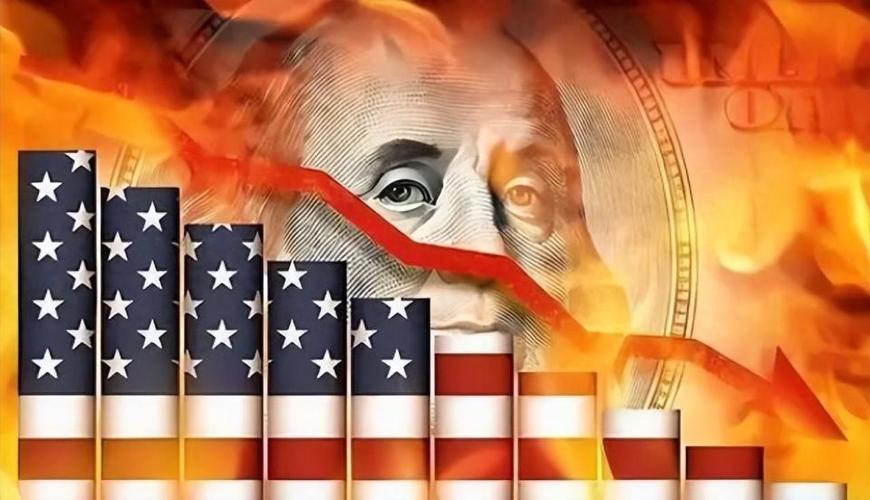
On the big stage of the global economy, the monetary policy adjustment of the Federal Reserve undoubtedly has a significant impact on the economies of various countries in the world. So when the Fed cuts interest rates, the question is, will it energize the European economy?
The Fed's rate cut means that monetary policy in the United States is easing. On the one hand, a rate cut would lower the cost of capital and stimulate domestic investment and consumption in the United States. This could have some positive implications for Europe, which is closely linked to the U.S. economy. First, a recovery and growth in the US economy could boost European exports. As an important trading partner, the increase in demand from the US market is expected to prompt European companies to expand production and increase exports, thereby driving the growth of the European economy.
Second, a Fed rate cut could trigger a global flow of money. In a low interest rate environment, money tends to seek higher returns. Some of the money is likely to flow into the European market to finance European companies and projects. This could help ease the financing pressures faced by European companies and boost investment and innovation. In addition, the inflows could have a positive impact on Europe's financial markets, boosting the performance of stock and bond markets and boosting investor confidence.
However, the effect of the Fed's rate cuts on the dynamism of the European economy is not certain. The European economy faces a number of its own problems and challenges that could blunt the positive impact of the Fed's rate cut.
First, Europe's internal structural problems remain acute. High debt levels, aging societies, and rigid labor markets are constraining the growth potential of the European economy. For example, some European countries have heavy government debt burdens and limited fiscal policy space, making it difficult to boost growth through large-scale fiscal stimulus. At the same time, the inflexibility of the labor market makes it difficult for enterprises to adjust their employment and wages, which affects their competitiveness and innovation ability.
Second, Europe's banks are in a lot of trouble. After the financial crisis and the European debt crisis, the asset quality and profitability of the European banking industry still need to be improved. The low interest rate environment has put a squeeze on banks' profit margins, making them more cautious in providing credit. In addition, the European banking sector has been slow to consolidate and lacks large, globally competitive banks. These problems limit the extent to which the banking sector can support the real economy, which in turn affects the vitality of the European economy.
Third, the political uncertainty in Europe is also having a negative impact on the economy. Factors such as the ongoing fallout from Brexit, political turmoil in some countries, and rising trade protectionism all add to the risks to the European economy. Political uncertainty makes businesses and investors worried about the future economic outlook, thus reducing investment and consumption, restraining economic growth.
The impact of the Fed rate cut on European economic dynamism is mixed. While there may be some positive effects to some extent, such as boosting exports and attracting capital inflows, the European economy's own problems and challenges may undermine these positive effects. To activate the European economy, European countries need to take a series of measures to solve their structural problems, strengthen the reform and integration of the banking sector, stabilize the political situation, and actively promote trade liberalization and regional economic cooperation. Only in this way can the European economy achieve sustainable growth and development in the tide of the global economy.
In today's global economic integration, the economies of countries are interdependent, and the monetary policy adjustment of the Federal Reserve is only one factor affecting the vitality of the European economy. While responding to external challenges, Europe needs to actively tap its own potential, enhance economic competitiveness through reform and innovation, and achieve economic prosperity and stability. Only in this way can Europe play a more important role on the global economic stage.

報告顯示,中國電力投資加速增長,預計2024年電網基建投資將超過5300億元。
近日,市場迎來了一則引人注目的消息:工業巨頭3M公司(MMM.N)在本周五公布了其季度業績報告,隨後股價飆升至近兩年來的
最近,外媒給OpenAI算了筆賬,今年可能要血虧50億美元。
近日,巴黎奧運會和世界鐵人三項協會聯合發布了一項重大決定,宣布因塞納河水質污染問題,原定於近期進行的奧運會鐵人三項首次下
當地時間7月18日,法國巴黎發生了一起令人震驚的持刀襲警事件。
近期,一則重大消息在國際舞臺上引起軒然大波,馬來西亞宣布加入金磚國家。
調查發現,互聯網和智能手機的使用幹擾了韓國近五分之一學生的生活。